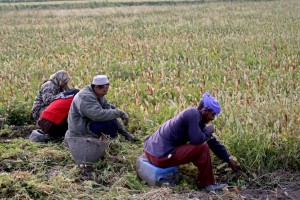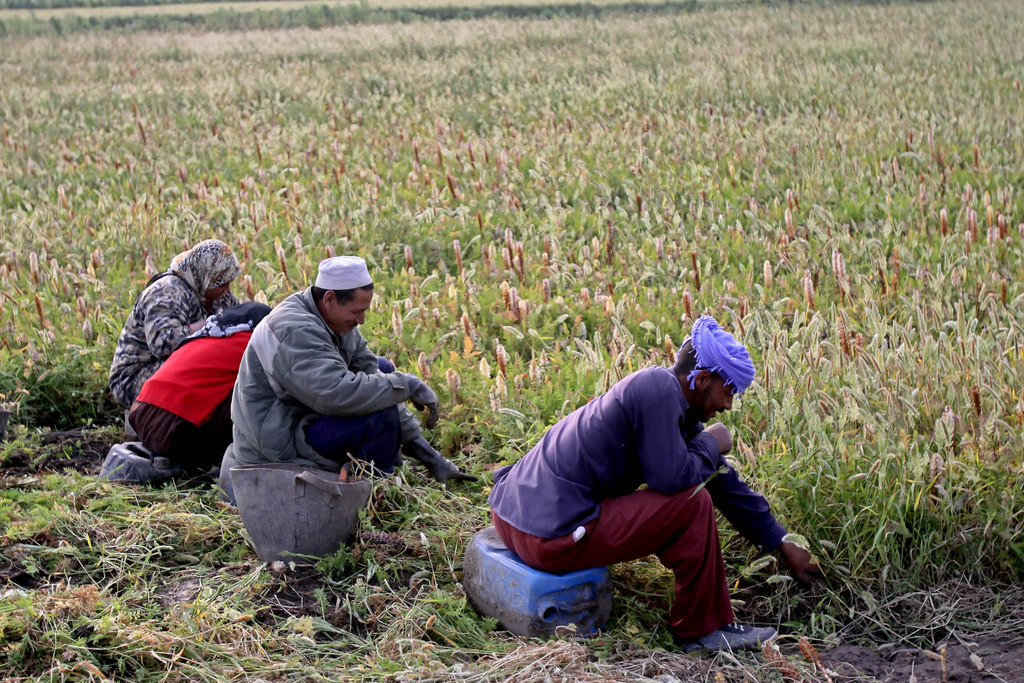
(Photo by Hassan Ibrahim/DNE)
Investment Minister Ashraf Salman said that new investments in the fertiliser sector have not yet been approved under pressure from the energy shortage crisis which affects factories, some of which have ceased production after receiving only 62% of necessary gas supplies.
“We have decided to suspend KIMA expansions in Aswan with estimated investments worth millions of dollars until a breakthrough is reached in resolving the gas shortage crisis,” Salman said.
He added that the price of supplying fertiliser to companies was increased by the Development and Agricultural Insurance Bank by 33% so that the price of one tonne of urea fertilisers are now worth EGP 2,000 instead of EGP 1,500 – while one tonne of nitrates stands at EGP 1,900 compared to EGP 1,400.
In response to fears that fertiliser prices will be raised for farmers, Salman said: “Farmers will be affected because production costs will increase. But the constitution obliges the government to purchase products from the farmer at a cost borne by the government while also adding to the farmer’s profit margin.”
Salman said that Abuqir Fertiliser Company supplies approximately 60% of the Development Agricultural Insurance Bank’s needs, and raising prices will improve the results of its operations, especially since the government had purchased state-owned companies’ products at less than 50% less of the market price.
“We are trying to save the fertiliser sector, which suffers from a lack of gas supplies with less than 62% of needs being met and the [fertiliser] tax hinders companies while products are purchased at a weak price,” he said.
Salman added that the first step will be to alter prices, followed by a review of the fertiliser tax imposed and potentially cancelling it within three months. The government claims it will provide for 95% of fertiliser plants’ gas needs by November through gas imports.




